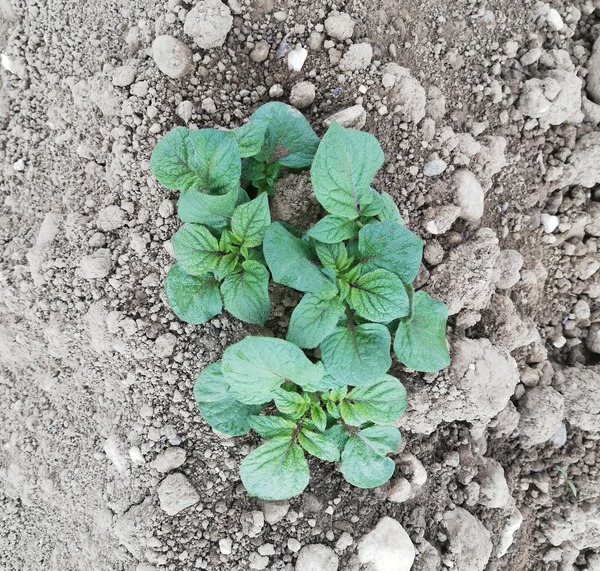Beneficial microorganisms open up new perspectives for the potato sector. Their ability to provide a wide range of services to potato plants can allow for limiting the use of water, fertilisers and pesticides. In the context of climate change and the global objective of reducing the use of pesticides and fertilisers, they represent promising tools to pave the way towards more sustainable agriculture. However, inoculation of microorganisms in potato fields has yet to reach these ambitious goals. Very little is known regarding the establishment and the persistence of the products in the soil due to the absence of monitoring of the microorganisms after field application. To answer those pending questions, the researchers inoculated potatoes with four plant growth-promoting microbial strains, on their own or in combination.
Over three years of field trials at the Changins research station of Agroscope, they assessed the effect of these microorganisms on potato growth and resistance to biotic and abiotic stresses. In addition, qPCR was used to trace these microorganisms in the potato roots at different stages of plant development. The inoculated microorganisms did not seem to improve the yield nor limit the impact of water stress. In addition to the yield assessment, the development of three common post-harvest diseases on the harvested tubers was also monitored. It was found that one microbial consortium tested was able to lower common scab and silver scurf-associated symptoms. It was composed of Rhizophagus irregularis MUCL41833 and Pseudomonas brassicacearum 3Re2-7. Tracing these strains revealed that they could establish in the root system of potatoes and survive until full flowering. This offers perspectives for the biocontrol of potato tuber blemishes that generate considerable economic losses for growers.

 tap and then scroll down to the Add to Home Screen command.
tap and then scroll down to the Add to Home Screen command.
Disqus
Para poder utilizar la función de comentarios, debes registrarte en el proveedor externo «Disqus».
Cuando activas esta función, tu navegador establece una conexión directa con los servidores del proveedor externo. Nos gustaría señalar que, tras la activación, los datos se transmitirán al proveedor externo y éste podrá establecer cookies, que también podrán utilizarse con fines de análisis y marketing. Para más información, consulta nuestra política de privacidad.
Activar